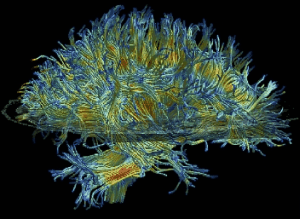Migraine Brain Attack: Just How Serious Is It?
Migraine is a serious disease, for a host of reasons. But a new study is giving us more insight into why migraine is dangerous.
We’ve talked about this before (see Are Migraines Dangerous?). It’s a complicated question with many perspectives.
But one of the concerns about migraine is that it may cause more problems in your body over time, and lead to more problems down the road. One of the biggest concerns is that migraine patients have an increased risk of stroke.
According to a study from 2015, part of the link between migraine and stroke may well be white matter lesions.

Lots of people have white matter lesions. It is technically a sign of degeneration in the brain, but quite often they’re not noticed at all. No noticeable symptoms. In fact, if a specialist sees some on your brain scan, if they’re small he may not even consider them worth mentioning.
That being said, sometimes they are more serious. The study we’re talking about (Small Brain Lesions and Incident Stroke and Mortality) suggests that there may be a link – a striking link – between those small “not-worth-mentioning” lesions and stroke – and hence, in some cases, death.
Compared with no lesions, patients with 3mm lesions were at 3x the risk of stroke. If the patient had both small and large lesions, the risk was actually 8x!
According to a study we talked about in 2013, those with migraine (without aura) had a 34% increased risk of developing lesions, while those with aura had a 68% risk.
Quite simply, the migraine patient is more likely to get the white matter lesions, the patient with the lesions more likely to have a stroke.
These lesions are linked to other types of degeneration, such as Alzheimer’s.
So how does this information help us, other than giving us more reason to worry (which isn’t actually a help)?
- First, it’s another reminder in general that migraine is serious. We need to fight it. Period.
- Second, knowing that migraine increases your risk of stroke reminds you to keep other risks at a minimum. If you’re leading a healthy life, and your genetics are not increasing your risk, your risk may still be low, even with migraine. But if you are already at a high risk, and you also have migraine disease, you need to take your stroke risk much more seriously.
Fight migraine and stroke. Don’t delay seeing your doctor about either concern.
For more information, see:
